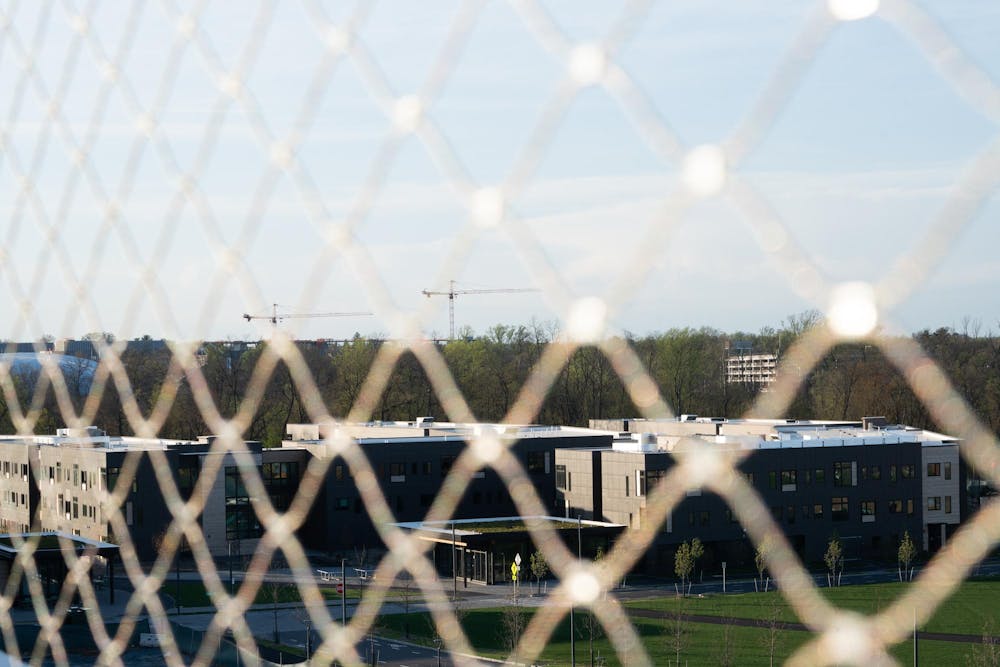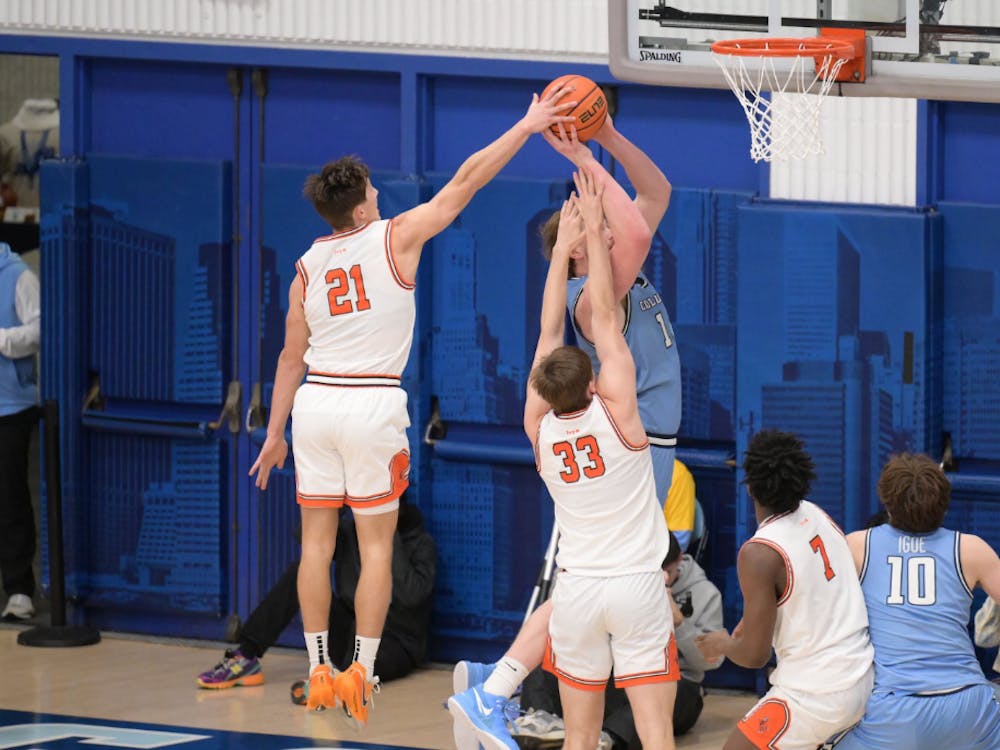In high school, Rishika Porandla ’28 completed seven part-time internships at NASA.
She is supposed to be on a path to full-time employment at NASA after college graduation through the Pathways Program, a federal initiative designed to provide students with paid work experience and a potential pathway into full-time roles within the government. Now, however, this guarantee is uncertain.
“New positions have not been opened for this year, and no official statement has been made about it,” Porandla said. “It just puts the future very up in the air, because we think we get job security with this Pathways Program, but we may not.”
In light of waning federal support for research at the University and various government agencies, early-career researchers at every level are facing fewer opportunities and growing uncertainty. As funding cuts mount, some students and postdocs are reconsidering careers in academia and government.
Porandla is a prospective astrophysics major and an undergraduate researcher at the Princeton Space Physics Lab. One project she hopes to contribute to is to the Nancy Grace Roman Space Telescope, a NASA-led mission focused on dark energy, exoplanets, and infrared astrophysics. However, with over 50 percent of NASA’s science funding in jeopardy under President Trump’s proposed budget for fiscal year 2026, the future of the mission is unpredictable.
“You have these big dreams — ‘I want to work here in this office, on this mission’ — but everything is so volatile,” Porandla said.
Amid the federal funding instability, Porandla also faced challenges in securing research opportunities for this summer. She applied to a National Science Foundation (NSF)-funded program called Research Experiences for Undergraduates (REU), which supports students working on research projects at a host institution over the summer. But after submitting applications to five REUs, Porandla received emails from Vanderbilt University, University of Texas-Austin, and Cornell University that those programs were canceled for the summer.
“It’s kind of disheartening to put so much effort into the applications and not get that return,” Porandla said.

According to Inside Higher Ed, at least a dozen REUs were canceled this year due to funding cuts, with project leads getting rejections on their proposals or simply not hearing back at all from the NSF. Porandla says this has widespread implications for many students interested in research, some of who are now resorting to unpaid internships and missing out on the paid research experience REUs ordinarily provide. This especially impacts historically underrepresented groups, which the program tends to target.
“REUs operate on DEI; they operate on giving minority groups opportunities, and that’s an underlying layer that I think is being ignored right now,” Porandla explained.
Brian Mhando ’26, an Ecology and Evolutionary Biology major, faced a similar situation to Porandla, with his “dream” summer internship being canceled due to federal funding cuts and staff restructuring from the Department of Government Efficiency (DOGE).
“It was a very scary situation at first because I rejected a few internships at that point,” Mhando said. “[By then], all of the really good internships had gone.”

Later, Mhando secured a new internship with the Rakai Health Sciences Program, where he’ll conduct research on HIV and gonorrhea resistance. The program is sponsored by the School of Public Health at Johns Hopkins University, where Mhando was supposed to complete his internship — however, he was sent to the lab in Uganda due to federal funding cuts.
“I always thought the relationship between the government and universities was something that we don’t touch,” Mhando said. “Funding cuts made me realize how vulnerable that relationship is.”
Instability to university funding also has implications for graduate school admissions, according to Aryan Gupta ’27, a student in the Astrophysics department. In an already competitive process, Gupta expressed his feeling that limited funding opportunities mean he has to work even harder in order to stand out.
“Personally I very much want to go to grad school; that’s my dream,” Gupta said. “It might be much harder for me to get into grad school than it was for me to get into Princeton.”
For those already in graduate school, waning federal support for research is creating uncertainty about their future work.
“It’s the trickle-down effect of everything that’s going on with the partnership, but also the anticipated attacks to the program that is causing all this anguish,” said a graduate student in the Geophysical Fluid Dynamics Laboratory (GFDL), who chose to remain anonymous.
The GFDL is a research center operated by the National Oceanic and Atmospheric Administration (NOAA) in partnership with the University. Tucked a few miles southeast from campus, the lab advances climate research through Earth system models and computer simulations. Despite being home to Syukuro Manabe — the 2021 Nobel Prize winner in Physics — and the birthplace of the first general circulation climate model, the GFDL’s future now sits on shaky ground due to funding cuts.
For one postdoctoral researcher at the GFDL, who also chose to stay anonymous, the path forward is becoming increasingly unstable. He had once envisioned a clear future at the lab grounded in exceptional research, but his plans have now been derailed.
“My plan, and I think the plan of the lab, was to try and find a place for me to become a permanent employee after the two years ended. But now, that’s not happening anymore,” the postdoc said.
In addition to a $210 million pause on federal funding due to alleged antisemitism, the University also faces a $4 million cut from climate research, with the Trump administration aiming to reduce what it labels “climate anxiety.” The administration is also proposing an over 25 percent cut to NOAA funding, with a 75 percent slash to the Office of Oceanic and Atmospheric Research (OAR), which runs the GFDL.
Although the Princeton funding cuts are not directly tied to the GFDL, there remains uncertainty about the lab’s future. The postdoc had originally planned to stay in academia by pursuing federal employment at the GFDL, but with funding risks and a federal hiring freeze, he began searching for university faculty roles instead.
The anonymous postdoc further noted that most faculty searches have been paused. “Universities like Princeton aren’t hiring anymore because they’re scared of what’s going to happen,” he explained. “I didn’t get any professor offers this year because of that.”
In March, the University announced it would freeze most faculty and staff hiring due to federal funding and endowment tax uncertainty. Many peer institutions, including Harvard and the University of Pennsylvania, have done the same. For the postdoc, even another postdoctoral contract has been difficult to secure, with universities lacking stable funding to bring on new researchers.
“I know there are tons of postdocs who just struck out on the job market this year,” the postdoc said. “There’s a lot of people looking for ways to survive the next couple of years in academia, and I think a lot of people are just going to leave.”
For Glen Chua, who received a Ph.D. in Atmospheric and Oceanic Sciences from Princeton in 2025, the unreliability of federally-funded research is prompting him to explore other paths. He is currently a NASA Postdoctoral Program (NPP) Fellow and worries about the impact that funding cuts may have at this point in his career.
Chua expressed that his early-career years are critical in establishing himself in research because each postdoctoral contract is so short. “It’s very hard to focus on your work when you’re trying to think, ‘Should I be looking out for myself in some way?’” Chua said. “It’s unclear whether I should be starting to look for a job or other opportunities.”
With research and federal employment opportunities increasingly at risk, Chua is now considering his last resort: entering the private sector.
“The job market in academia has always been very difficult, but now increasingly so. As much as I may not want to directly jump into the private sector, I’ve always been aware that it might eventually be something I need to do,” Chua said. “All this has accelerated that.”
Christine Blackshaw, a fourth-year Civil Environmental Engineering graduate student working in the Hurricane Hazards and Risk Analysis group, shares this sentiment.
“The only other pathway forward to stay within climate [studies] is industry,” Blackshaw said.
However, the private sector may not always offer researchers the opportunity to pursue what they’re interested in. The anonymous postdoc, for instance, says his work is less likely to align with corporate priorities.
“Most of my work isn’t directly applicable to what the private sector is interested in,” he said. “It’s a little bit more theoretical, [but] I want to do the kind of stuff that I find interesting.” For this reason, he is leaning toward staying in academia.
While Mhando understands the motive for entering the private sector, he aims to dedicate his career to service — something he feels he won’t accomplish working in industry.
“I understand the value of having a Princeton degree and where that can take you financially, but I feel like that would be disingenuous if I gave up on my dreams of helping people just because of one bad government,” Mhando said. “I’ve always wanted to help people, and I don’t think the private sector is where that happens.”
On a broader scale, the shift toward privatizing key areas of research brings its own set of challenges. For Blackshaw, ensuring public access to information is among the most pressing.
“Not all private companies [are this way], but in general, if you privatize climate research and climate modeling, that means access to that type of critical life-saving information and data is going to become significantly reduced,” Blackshaw said.
The postdoc agrees, adding that privatized research is not always conducive to the most effective scientific inquiry.
“The motive isn’t there to get the best answer, [but] an answer that someone pays for,” the postdoc said. “The investment needed to really answer climate science questions has to come from the federal government, or somewhere where you’re not beholden to the profit motive.”
For early-career researchers, the combined uncertainty around funding, academic jobs, and access to open data has led to a growing sense of disillusionment. Some are beginning to look beyond borders for more stable opportunities, raising fears of a long-term talent drain in American science. In a poll conducted by Nature, over 75 percent of scientists who responded are considering leaving the United States following funding disruptions.
“As someone who’s quite an early-career scientist, I’m really afraid that a lot of the talent, a lot of the leading scientists, are going to go somewhere else,” the GFDL grad student said. “That will leave behind a massive vacuum of knowledge, expertise, and innovation that scares me, because I’m not sure who’s going to be left to fill that hole.”
Gupta, though still an undergraduate, agreed that the lack of funding may encourage astronomers to think about industry-oriented roles or developing skill sets applicable to fields outside of astronomy. To this end, he is currently planning to minor in Statistics and Machine Learning.
“If astro doesn’t work out, at least I have a little bit of a statistical background to get a data science job,” Gupta explained. “I’m picking projects in astronomy that are a little more translatable to the private sector.”
While funding could eventually be restored, the impact of these cuts could extend past Trump’s time in office. Some researchers worry that the long-term damage to scientific institutions and processes may be more difficult to reverse. The postdoc explained that, for the GFDL, research relies on a continuous transfer of knowledge between generations of scientists.
“If suddenly everything gets gutted and you have to start from the ground up, I think that would just be almost impossibly hard,” the postdoc said. “You definitely can’t get that back in four years.”
Maya Chu is a Features staff writer for the ‘Prince.’
Please direct any corrections to corrections[at]dailyprincetonian.com.








